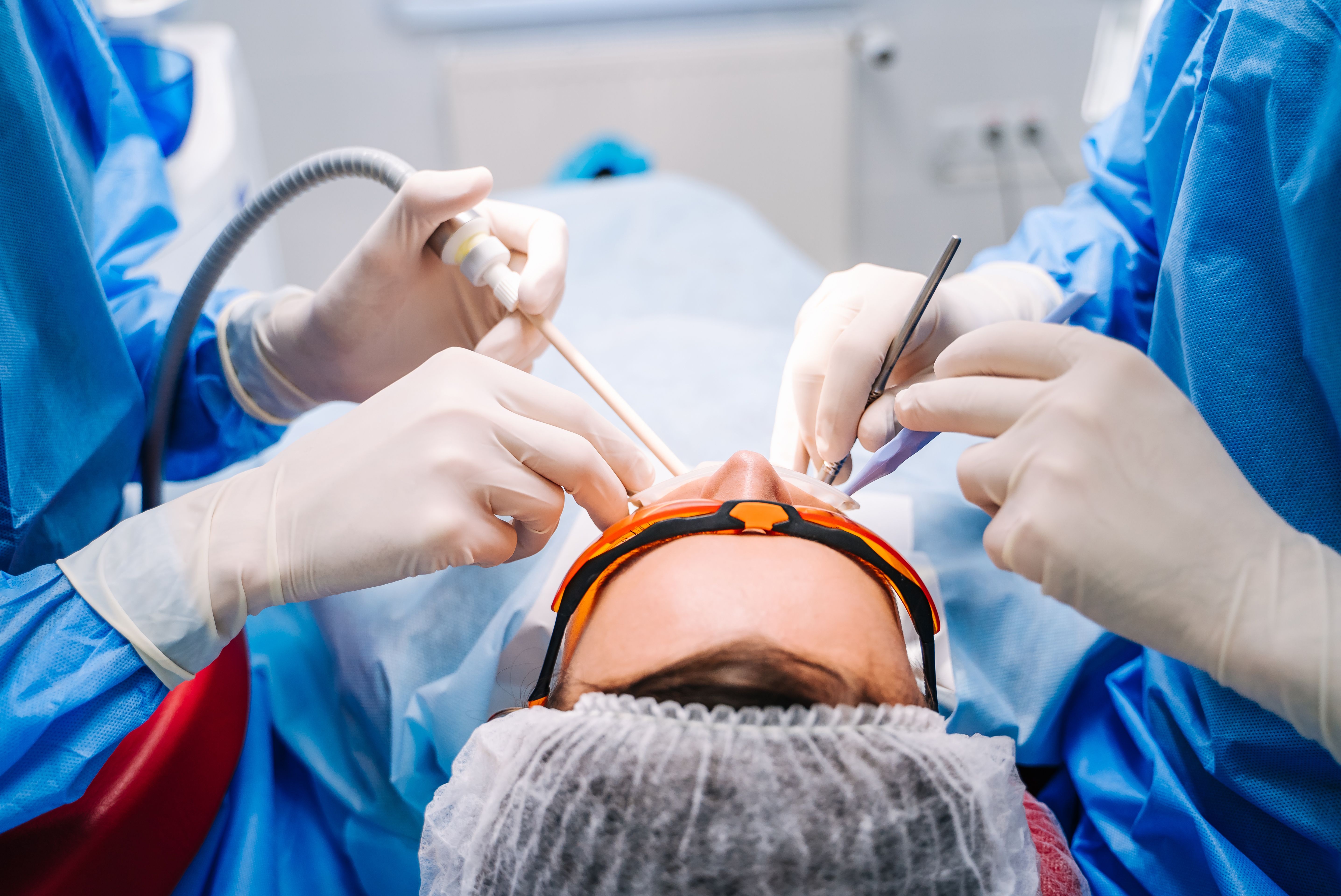Study finds concentrated iodine rinse is effective against SARS-CoV-2
A diluted concentration of iodine rinse has been found to be effective against the coronavirus and can prevent transmission.
© [Vadim] / Adobe Stock

Researchers have found that a diluted concentration of over-the-counter povidone-iodine (PVP-I) oral rinse can kill viruses such as the SARS CoV-2 and prevent transmission in seconds, according to a study published in the Journal of Prosthodontics.
The authors of the study, most of whom are faculty at the University of Connecticut Health Center, wanted to investigate a way to decontaminate a patient’s oral and nasal cavities to protect and prevent transmission. The COVID-19 pandemic has presented a severe threat to dental professionals who work in the oral cavity.
“We were not satisfied with the safety provided by the mouth masks and face shields,” said Dr. Avinash Bidra, clinical associate professor of prosthodontics at the School of Dental Medicine at UConn and lead author of the study. “Almost all procedures involve aerosol production, resulting in a higher risk for clinicians, assistants, and patients.”
PVP-I solutions sold over-the-counter are usually a 10% concentration for use as an antiseptic for lacerations. The SARS-CoV-2 USA-WA1/2020 strain, virus stock was tested against oral antiseptic solutions where PVP-I was the only active ingredient. The PVP-I was tested at diluted concentrations of 0.5%, 1%, and 1.5%. Each of these diluted concentrations completely inactivated SARS-CoV-2 within 15 seconds of contact. The viricidal activity was present at the lowest concentration of 0.5% and at the lowest contact time of 15 seconds.
The study’s authors recommend using 9.5ml of water and 0.5ml of a commercially available 10% povidone-iodine antiseptic to create a 0.5% diluted solution. The dilution should be done immediately before use and the rinsing should be done for a minimum of 30 seconds. The only contraindication is for patients with iodine allergy, pregnant patients, or those with thyroid problems.
“The safety of povidone-iodine in the sinonasal and oral cavity has been well documented and we have shown that the SARS CoV-2 virus can be rapidly inactivated by a topical application,” said Dr. Belachew Tessema, associate professor in the division of otolaryngology at the UConn School of Medicine. “Studies have shown that the nasal and oropharyngeal cells are reservoirs for SARS-CoV2 infection. We believe that nasal and oral decontamination with PVP-I may play an adjunctive role in mitigating viral transmission beyond PPE.”
Dr. Tessema and the otolaryngology department at UConn have studied the safety of PVP-I in the oral and nasal cavity, and they are optimistic that this approach will have other applications.
The study was published in the June 2020 issue of the American College of Prosthodontists Journal of Prosthodontics. The study in its entirety can be read here.
University of Texas Health Science Center San Antonio to Launch Center for Regenerative Sciences
June 17th 2024The center aims to translate preclinical discoveries into therapies for dental and craniofacial diseases, leveraging the school’s expertise in stem cell-based treatments and 3D printing technologies.